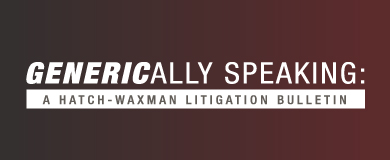- Acumen Powered by Robins Kaplan LLP®
- Affirmative Recovery
- American Indian Law and Policy
- Antitrust and Trade Regulation
- Appellate Advocacy and Guidance
- Business Litigation
- Civil Rights and Police Misconduct
- Class Action Litigation
- Commercial/Project Finance and Real Estate
- Corporate Governance and Special Situations
- Corporate Restructuring and Bankruptcy
- Domestic and International Arbitration
- Entertainment and Media Litigation
- Health Care Litigation
- Insurance and Catastrophic Loss
- Intellectual Property and Technology Litigation
- Mass Tort Attorneys
- Medical Malpractice Attorneys
- Personal Injury Attorneys
- Telecommunications Litigation and Arbitration
- Wealth Planning, Administration, and Fiduciary Disputes
Acumen Powered by Robins Kaplan LLP®
Ediscovery, Applied Science and Economics, and Litigation Support Solutions
-
April 23, 2024David Martinez Recognized Among Top 100 Lawyers in Los Angeles by LA Business Journal
-
April 15, 2024Robins Kaplan Named to 2024 BTI Client Service A-Team
-
April 9, 2024Robins Kaplan LLP Files Complaint Against Social Media Giants Meta, Snap, TikTok on Behalf of Spirit Lake Nation, Menominee Indian Tribe of Wisconsin
-
April 30, 2024Navigating Generational Dynamics
-
May 2-3, 2024ACI Advanced Forum on Managed Care Disputes and Litigation
-
May 6, 2024Litigating with the Legends
-
First QuarterGENERICally Speaking: A Hatch-Waxman Litigation Bulletin
-
March 2024e-Commerce: Pitfalls and Protections
-
March 25, 2024Endo Ventures Unlimited Co. v. Nexus Pharms. Inc.
-
September 16, 2022Uber Company Systems Compromised by Widespread Cyber Hack
-
September 15, 2022US Averts Rail Workers Strike With Last-Minute Tentative Deal
-
September 14, 2022Hotter-Than-Expected August Inflation Prompts Massive Wall Street Selloff
Find additional firm contact information for press inquiries.
Find resources to help navigate legal and business complexities.
Teva Women’s Health, Inc. v. Lupin, Ltd.
August 16, 2012

Case Name: Teva Women's Health, Inc. v. Lupin, Ltd., Civ. No. 10-603 (PGS), 2012 U.S. Dist. LEXIS 90698 (D.N.J. June 29, 2012) (Sheridan, J.)
Drug Product and Patent(s)-in-Suit: Seasonique® (levonorgestrel, ethinyl estradiol); U.S. Pat. No. 7,320,969 ("the '969patent")
Nature of the Case and Issue(s) Presented: Claim 19 of the '969 patent claims a method of contraception that administers a regimen of eighty-four days of a combination pill that contains a specific progestin (levonorgestrel) together with a specific estrogen (ethinyl estradiol), followed by precisely seven consecutive days of a different pill containing ethinyl estradiol administered on its own without any progestin. Put another way, claim 19 claims an extended oral contraceptive regimen that administers unopposed estrogen during the traditionally hormone free interval ("HFI"). Lupin and Mylan (together "Lupin") stipulated to infringement; the only issue presented at trial was Lupin's affirmative defense that claim 19 of the '969 patent was invalid as obvious in view of the prior art under § 103. The Court found that Lupin met its burden and held claim 19 invalid as obvious.
Why Lupin Prevailed: Three experts presented the prior art at trial: Dr. Sulak for Teva; Dr. Barnhart for Lupin; and Dr. Carr for Mylan. Each expressed different views. After hearing each expert's opinion as well as the inventor's testimony, the Court discussed seventeen prior art references from the perspective of a person having ordinary skill, which the Court held was a person having a graduate medical degree, such as an M.D., Ph.D, or Pharm. D. as well as several years experience in the research and development of oral contraceptive pills. Based on its analysis, the Court found that tricycling packets of oral contraception, i.e., taking three, or sometimes four, packets of active pills in a row before having a pill-free week, was part of the art, and widely adopted within doctors' practices. Because Dr. Sulak characterized tricycling as merely a "concept," when in fact it was commonly used, the Court discounted her testimony. Moreover, the Court found that certain references would have motivated a person of ordinary skill to reduce the HFI from seven to two days using unopposed estrogen.
Likening the inventor's testimony to that of a person of ordinary skill in the art, the Court relied upon the inventor's testimony to assist in determining whether improper use of hindsight occurred in deciding this case. The Court characterized this analysis as follows: "The issue is whether Dr. Ben-Maimon's [, the inventor,] decision was a brainstorm or an act of common sense." Because Dr. Ben-Maimon is a medical doctor whose work experience included oversight of clinical testing, and because she reviewed the prior art, the Court concluded that it was obvious to try to eliminate the HFI. To do so would necessitate the elimination of "only two more days!" In that light, the Court held that the creation of the '969 patent was more common sense than a brainstorm, and that any person of ordinary skill would have reached the same conclusion as Dr. Ben-Maimon.
Finally, the Court held that the evidence of prima facie obviousness was strong, and any evidence brought by Teva regarding secondary considerations, addressed in the Court's opinion, were substantially outweighed.
Related Publications
Related News
If you are interested in having us represent you, you should call us so we can determine whether the matter is one for which we are willing or able to accept professional responsibility. We will not make this determination by e-mail communication. The telephone numbers and addresses for our offices are listed on this page. We reserve the right to decline any representation. We may be required to decline representation if it would create a conflict of interest with our other clients.
By accepting these terms, you are confirming that you have read and understood this important notice.
